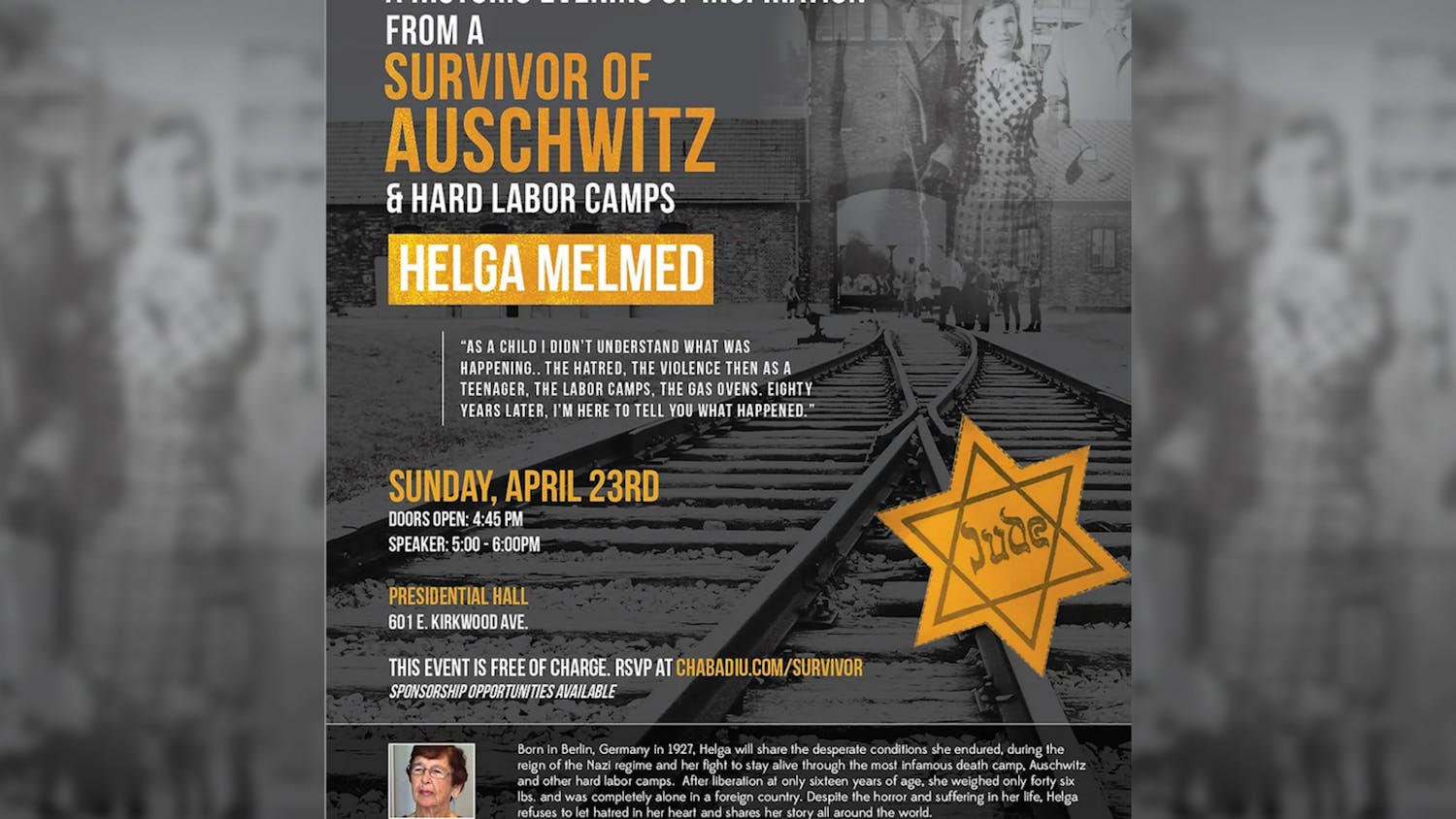IU students, faculty and community members learned about the future of data and data sharing in “big business” Monday night at Woodburn Hall.
Dean Allemang, the leader of the web engineering company Working Ontologist LLC, led his discussion, “Industrial Big Data – When Big Data Meets Big Business,” as a part of the Network Science Talks sponsored by the Cyberinfrastructure for Network Science Center.
Allemang said the continuously changing world of technology has led to a world drowning in data.
Because technologies have been created to make it easier for multiple computer users to collect and store more data, the presence of data has significantly increased, thus leading to large, difficult to process data sets called “big data”.
Allemang introduced a new trend in big data called “industrial big data”, a network that could potentially involve a large amount of interconnected data that can be used and manipulated by several businesses and industries. Industrial big data would not be owned by a single source, but rather organized through collaboration by multiple sources.
“This is an idea of, instead of having data about one company, we could investigate the idea of shared data across an entire industry,” Allemang said. “We could find out what sort of data could be valuable to a bunch of companies.”
Allemang said he recognized the aspect of competition among different companies in the same industry.
“Yes, there is competitiveness among the different companies. However, they all essentially want to know about the same thing,” Allemang said. “They all want to know about their products, and they want to know about their customers. They want to know how to develop their products to better suit their customers.”
Allemang spoke of two different data sharing business models: science as a service and pre-competitive research.
Science as a service is the act of performing an experiment and selling those results to any company willing to buy them. The specifics of the experiments need not be known by the companies, just the results. This causes competition between companies for ownership of the results. There is a race to buy and implement the results first.
Alternatively, pre-competitive research is a method with which anyone can perform the experiments and get the same results. Multiple companies collaborate on this research before the competition stage of their businesses. Once the research and results are finalized, the companies then split and begin their competition.
“Sharing data is a value,” Allemang said. “It’s a business model, and it’s to their benefit to father more and more information.”
The two main challenges that Industrial Big Data faces are control and ownership, Allemang said. In pre-competitive research, there is no distinct owner of the information. Funding is also an issue with the research, with different pros and cons for public and private funding.
Ying Ding, associate professor for the IU School of Informatics and Computing and a host of Allemang’s talk, said she believes this information is vital for students.
“This opens a gate for new knowledge,” Ding said. “This can lead to a better understanding of data and where’s it’s going. It’s important to know what we can about the future of collaborating our data.”
Ding related this talk to the School of Informatics and Computing’s new Online Data Science Program. Starting in January, students will be able to receive a certificate in this program and take courses on data collection, management, infrastructure, analysis and visualization.
This talk also gives IU upperclassmen insight into the job markets they’re about to enter, Ding said.
“It’s important to find out what challenges the different industries will be facing because of this collaborative data,” she said.
Allemang proposed a solution for the control of competition for data among those businesses unwilling to share and collaborate. If businesses work together to collect the data that, essentially, they all need, it will allow for a more open discussion and development among companies, he said.
“The private sector poses the questions. The public sector selects the answers,” Allemang said.
Allemang related Industrial Big Data and data sharing back to business’ main goal: maintaining a successful business in a growing and developing economy.
“This all goes around to improving the business,” Allemang said. “The goal is to do business better.”
Follow reporter Tori Lawhorn on Twitter @ToriLawhorn.
Web engineer talks future of industrial data
Get stories like this in your inbox
Subscribe




